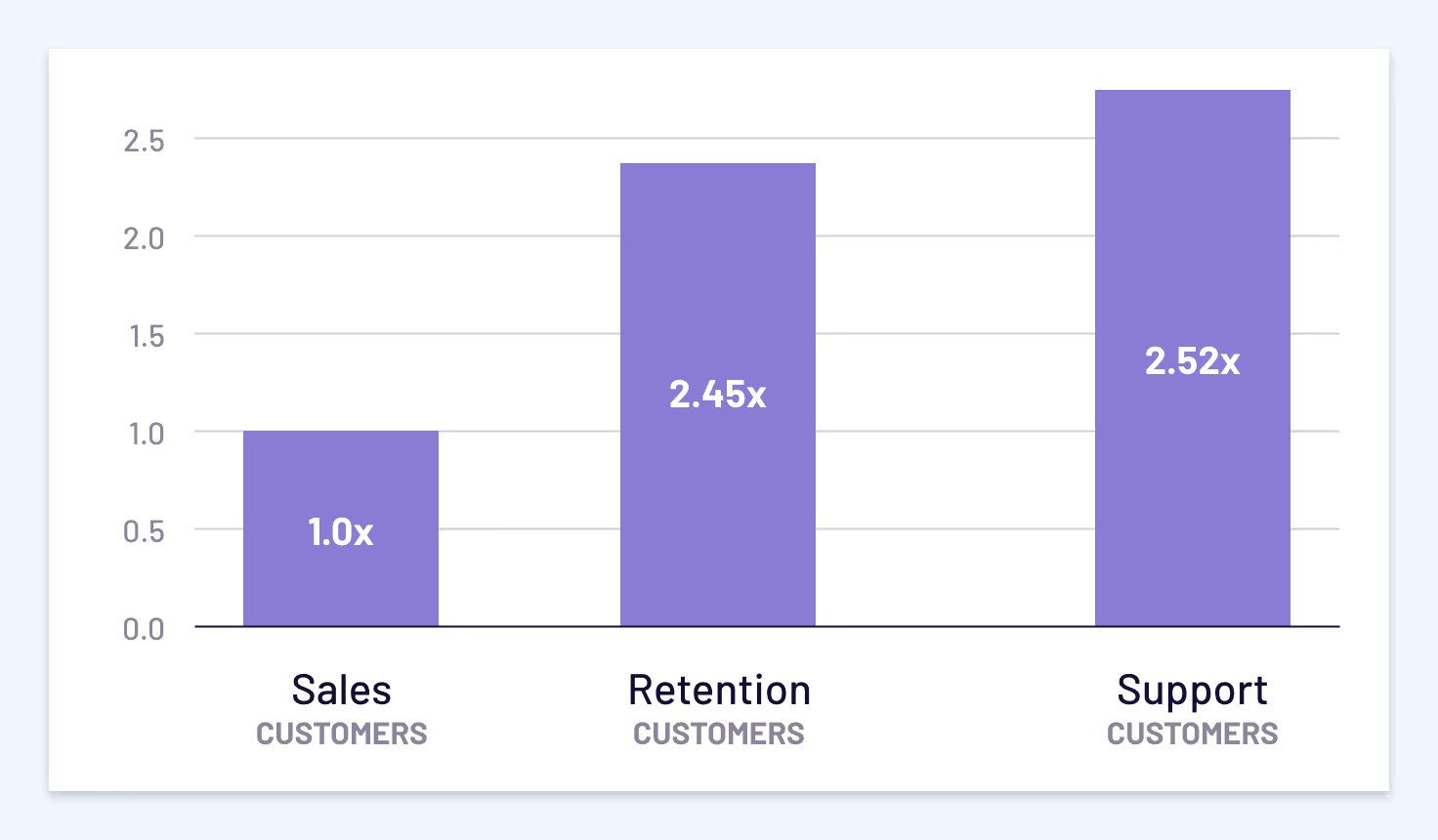Gnashgab.Zooterkins.Scobberlotcher.Unsurprisingly, these are three utterances that were completely absent from the 1.84 million customer conversations we analyzed from more than 15 contact centers to determine which swear words are most used by contact center agents. During this analysis, we identified each time a given swear word showed up in conversation. Then, based on each client account, we were able to attribute each instance of swearing to its correct contact center setting (i.e., sales, care, retention).Now, if you happen to be some poor scobberlotcher-lovings gnashgab, take heart—while swear words themselves may fall in and out of style, swearing itself never will. Quite the contrary, as swearing is recognized as a universally shared human linguistic phenomenon, one that’s been around for centuries. Probably because swearing is kinda funny. But also probably because the documented benefits of swearing are numerous.Swearing can increase our tolerance for pain. It can improve our capacity for physically taxing activities and provide psychological relief from being rejected or excluded. Swearing can even promote social bonding. It's also notable that some of these same studies demonstrate that euphemisms for swearing (e.g., fudge or darn) don't have the same psychological effects as the real #@%!ing deal.

Sorry Cap!Point being, this means that while all swears are words, not all words get to be swears. And with all the emotion, frustration, and stress inherent in modern contact centers, inevitably, contact center agents make the occasional mistake as well. So, what are the FIVE swear words contact center agents uttered in 2021?
#5 and #4
At #5 and #4, we have a TIE between two relatively mild yet popular swear words: cr@p and d@mn.

#3 and #2
At #3 and #2, we have ANOTHER tie between two relatively less mild yet also popular swear words: h3ll and sh!t

#1
And at #1, it seems we have a gnashgabing case of collateral damage, as a$$ is officially 2021's most used swear word. We say this because a#$ earned this distinction simply due to typos. For instance, when moving quickly, innocent words such as "ask" or "as" might, well, end up as something more unfortunate.

But fear not, contact center leaders. Although these are the most common swear words that agents used, our analysis shows that contact center agent swearing, in general, is anything but common. For instance, the old f-bomb is one of the most popular curse words in the United States, especially in its coastal regions and major cities.That said, where the f@%k is it in the agent vernacular? In our over 1.8 million conversations analyzed, there were actually 0 instances where an agent used the f-bomb. What’s more, in aggregate, agent swearing appears in less than 0.01% of conversations. When taking into account typos for chat, that percentage drops even lower.

However, customer experience (CX) leaders, be aware of the amount of foul language that your agents hear from customers. 97% of all swearing in contact center conversations come from the customer (~30x more). This is particularly true for support and retention teams, whose customers swear ~2.5x more than those for customer sales.

So What the F-bomb is Going On Here? (Some Insights to Swear By)
- A significant portion of agent swearing is accidental chat typos due to the high-speed nature of contact centers.
- Intentional agent swearing is generally colloquial and used to build rapport with the customer, so it's not always a bad thing.
- Last but certainly not least, agents are subject to way more swearing than they dish out. Under the high-pressure contact center environment, they withstand high customer emotions to provide good experiences. (So make sure to show them some love!)
How to Turn Those A#$es Into Action
Despite the light tone here, we felt it important to end with some constructive thoughts for CX leadership based on this analysis.Frankly, in this day and age, agent typos in chat environments should not still be happening. As digital channels become the primary point of contact for customers and brands, interactions need to become more polished. And as customer experience artificial intelligence (AI) becomes increasingly sophisticated, these typos are easily avoided through smart, pre-populated responses and automatic spell check suggestions.Secondly, agent satisfaction should be top of mind. Given the high stress and potential verbal abuse that agents are subjected to, contact center leaders need to find ways to increase agent satisfaction, particularly when churn and ramp-up costs are significant expense items for contact centers. Robotic process automation (RPA) tools, auto-response suggestions, and real-time coaching can make an agent's job more meaningful by allowing them to focus on more interesting, complex tasks and providing visibility for an agent on their own improvement and progression.Lastly, professionalism and mutual respect are key to any productive conversation—from both agents and customers. Manager alerting should be set up to flag when a customer is especially difficult and berating an agent with expletives. This has the dual benefit of helping identify/resolve complex customer issues as well as shield an agent from potentially unproductive conversations and verbally abusive customers.Curious about actually putting these eye-opening solutions to work in your own contact center? Cresta can help. (Empowering contact center leaders and agents with the power of Expertise AI™ is kinda our thing.)So, do yourself a favor and schedule a gosh-darned demo today!



